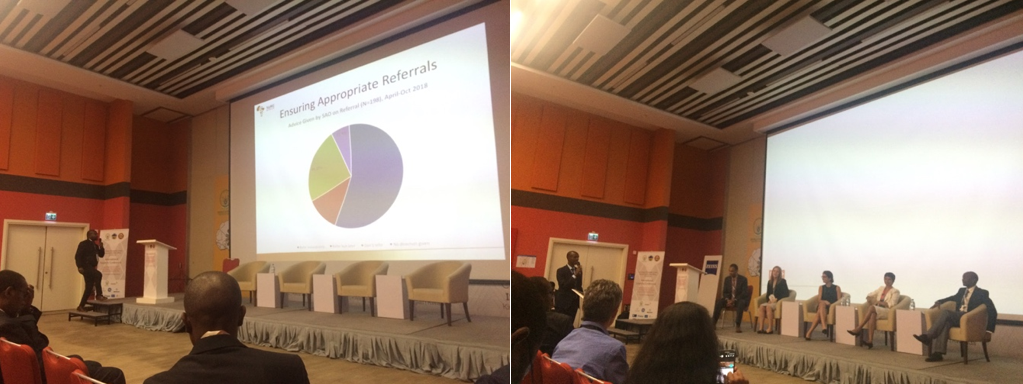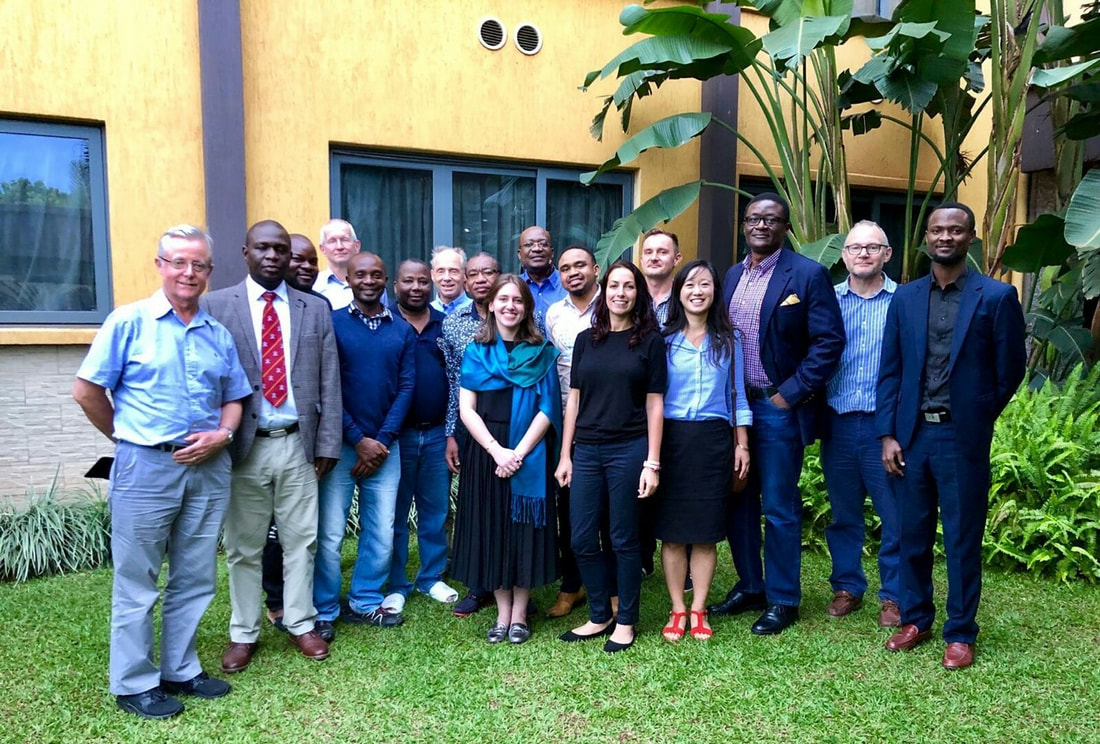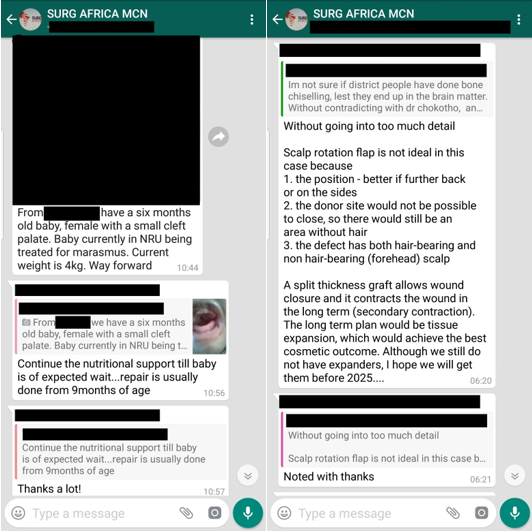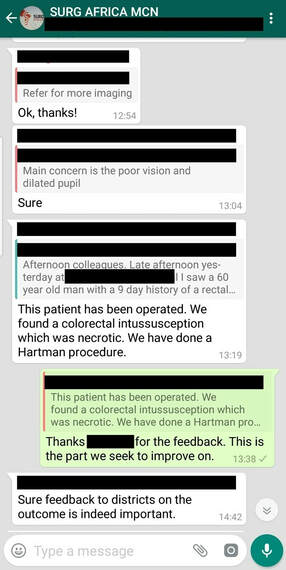|
SURG-Africa researchers from Ireland, Malawi, Tanzania and Zambia present their work at the COSECSA Conference and all country partners meet to conduct the second annual SURG-Africa Consortium Meeting SURG-Africa participated in the 19th Annual COSECSA AGM and International Scientific Conference, held at the Kigali Convention Centre, 5th-7th December 2018. The theme of the conference was ‘Surgical Infections and Safety; Global Surgical, National Surgical, Anaesthesia and Obstetrics Plan’. The agenda for the conference can be viewed here. COSECSA, as the second largest surgical training body in Sub-Saharan Africa, attracts a large number of delegates to its high-level annual conference. Therefore, the conference provided the consortium with ample opportunity to network with a range of stakeholders from surgical providers and academics, to decision- and policy-makers. Presentations from our country coordinators Jakub Gajewski (RCSI), Mweene Cheelo (Zambia), Gerald Mwapasa (Malawi) and Adinan Juba (Tanzania) demonstrated the measurable impact of SURG-Africa’s work. Jakub presented on ‘Non-specialist surgical training, current status and way forward’ as part of a Panel on Expanding Surgical Education in Africa. This presentation gave a general overview of training of surgical providers at the district level in the three partner countries. Mweene presented on ‘Establishing a National Surgical Information System in Zambia – the SURG-Africa project’. This presentation described work put into incorporating surgical variables into the national HIMS through DHIS2. Gerald presented on ‘WhatsApp Group Forum (WGF) Improving Rural Population Access to Specialist Surgical Care in Malawi’. This presentation described how using a WhatsApp group improved access specialists opinions and advice on patient surgical care at the district hospital level. Adinan presented on ‘Self-reported reasons for unnecessary surgical referrals in Malawi, Tanzania and Zambia’. The aim of this presentation was to compare the rates and reasons for unnecessary referrals from the district level Overall the conference was a great platform to enhance the visibility of the SURG and to disseminate key findings throughout the COSECSA region in line with our dissemination plan. SURG-Africa also used the opportunity to meet with academics and relevant bodies interested in implementing similar surgical interventions in other COSECSA countries. Consortium Meeting For the second time since the successful conception of SURG-Africa, the team ended a busy week with the Annual Consortium Meeting on the 8th-9th December. This meeting involves all the partner researchers and PIs from RCSI, ECSA, TSA, COM, SSZ, Radboud, UOXF and COSECSA. The Consortium meetings are not only a joyful reunion which help to strengthen the inter-country relationships, but are also an essential to keeping the team in sync with respect to the SURG-Africa research agenda. Each country research team gave updates on their progress in line with their respective work packages and deadlines. As a whole, the consortium discussed next steps, including data collection, dissemination plans, stakeholder meetings and upcoming publications (keep an eye out for more our papers here). It’s always great to reflect on the impact of SURG-Africa thus far and to plan for further exciting developments. Hear from SURG-Africa on their Mobile Managed Clinical Network in Malawi which has facilitated mentorship between district and central surgical clinicians and decreased the number of unnecessary surgical referrals from the district level In Malawi, an estimated 80% of the population are based in rural areas dependent on district hospitals to provide their primary source of essential surgical care. District hospital service provision often relies on non-physician clinicians called clinical officers. These clinicians who are at the frontline of surgical services for their communities lack mentorship and access to expert consultations from specialists based at the central hospitals. A lack of timely advice has resulted in the referral of simple cases from the district level to the central hospital. Unnecessary referrals, often made without advanced notice to the central hospitals, are associated with increased travel and hospital expenses for patients and create congestions in the delivery of central hospital services. SURG-Africa introduced two-monthly visits of teams of specialists (in surgery, obstetrics, anaesthesia and nursing) to the district hospitals. In order to bridge the gaps between these visits, SURG-Africa implemented a Managed Clinical Network via a free and commonly used mobile communications application. The introduction of this network gives district clinicians direct access to specialist consultants at the central hospitals. This network means that district level clinicians conducting surgery get immediate and expert advice on their surgical cases. The forum enables district level practitioners to share text messages, photos, videos and audio clips about relevant cases in real time with specialists at the central level, all of which can aid the efficiency and ease of making clinical decisions. In the event that referrals are necessary, the benefits go both ways: district clinicians are given advice on essentials steps to prepare the patient ahead of the journey, and surgeons at the central hospitals are given advance notice of an incoming patient. This network was launched in the Southern Regions of Malawi in March 2018, and is managed by the SURG-Africa project coordinator in Malawi. To date, this network links over 100 district clinicians with 15 specialists based at Queen Elizabeth and Zomba Central Hospitals. In the period between its’ launch and July 2018, a total of 95 cases were consulted on within the group. District clinicians often received responses to their surgical cases within 1 hour. Following advice, over a third of these cases were managed locally avoiding unnecessary referrals. Of the cases that were referred the central hospital specialists benefited from the richness of information included in the forum such as the images and the ability to ask further questions, which they are unable to do with established paper-based referral pathways. The mobile network has enhanced the accessibility and reach of mentorship. Versus traditional one-one feedback, the information communicated in the network is open to the entire group strengthening the capacity of all district clinicians involved. The network is progressively being built into standard practice. It is becoming compulsory for each district clinician to report case details in text format and to wait for advice (unless urgency of the case dictates immediate referral), before referring a patient onwards. As our Malawi research coordinator Gerald Mwapasa said himself when presenting this work at the 19th COSECSA AGM and Conference: “‘SURG-Africa managed clinical network brings district clinicians and surgeons at central hospitals closer. The results? Better health outcomes for patients, improved learning opportunities for clinicians and more efficient referral pathways”. We hope this model of mobile mentorship will continue to improve access to safe surgery for remote populations and the standard of supervision between central hospital and district clinicians in Malawi. Watch our video to hear more from the team on the ground using the network, read more via ResearchGate and keep an eye out for forthcoming publications. |
NEWSArchivesCategories |





 RSS Feed
RSS Feed